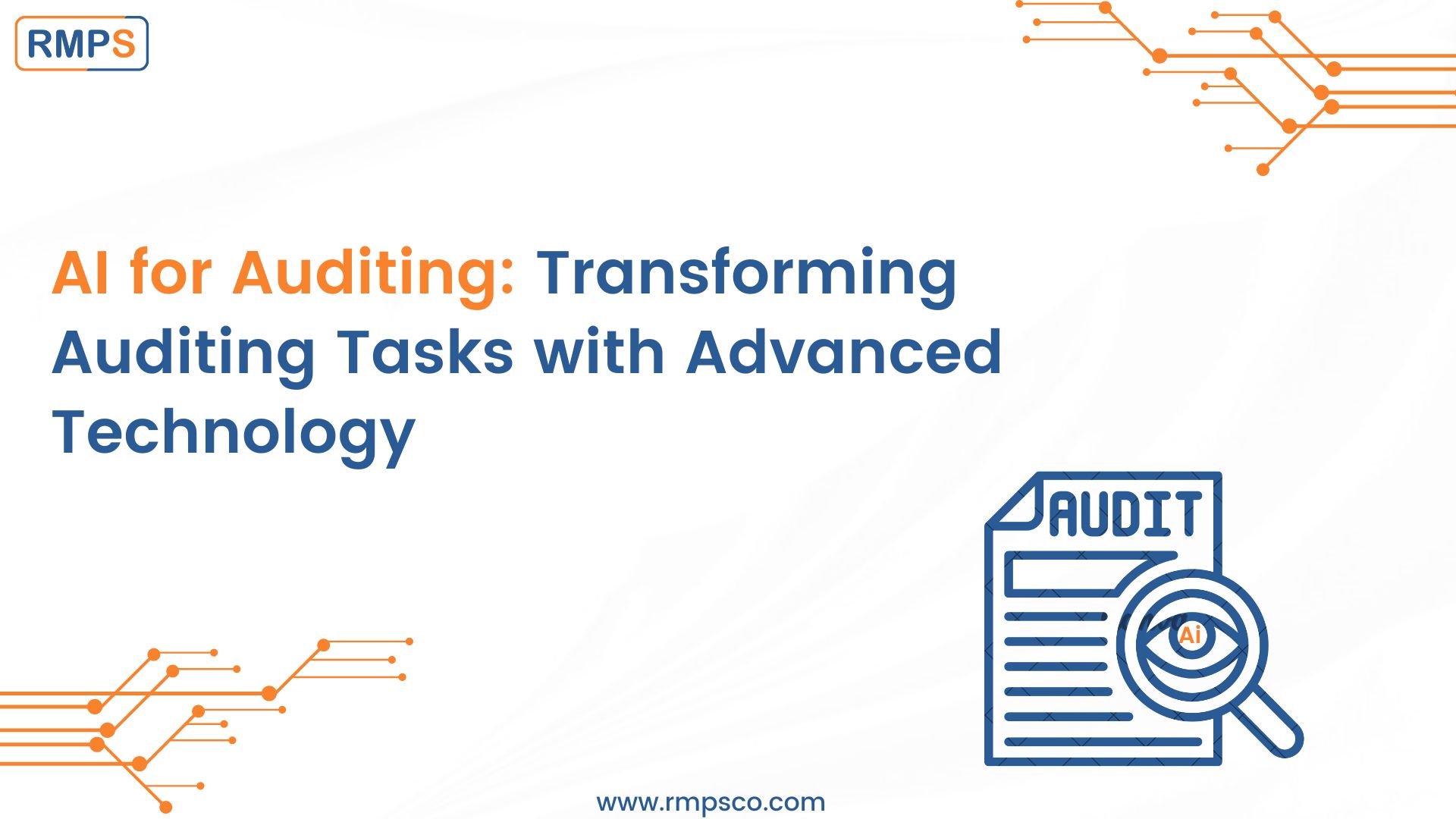
In the rapidly evolving world of finance, auditing stands as a cornerstone for ensuring accuracy, compliance, and integrity in financial reporting. The advent of Artificial Intelligence (AI) for auditing has brought transformative changes to this crucial function, enhancing the efficiency and effectiveness of auditing tasks.
Understanding AI for Auditing
AI for auditing involves the use of advanced algorithms and machine learning techniques to automate and enhance various auditing processes. We use these technologies to quickly and accurately analyze vast amounts of data, identifying anomalies, trends, and patterns that would be challenging and time-consuming for human auditors to detect.
Key Benefits of AI for Auditing
1. Increased Efficiency: You can use AI-powered tools to process and analyze large volumes of data at unprecedented speeds. Consequently, this capability significantly reduces the time required for auditing tasks, allowing auditors to focus on more strategic and analytical aspects of their work. By automating routine tasks, AI frees up auditors to engage in higher-level analysis and decision-making.
2. Enhanced Accuracy: By minimizing human error, AI ensures greater accuracy in auditing. You can use machine learning algorithms to detect subtle discrepancies and irregularities in financial data that human auditors might overlook. As a result, this heightened level of accuracy leads to more reliable financial reporting and greater trust in the audit process.
3. Improved Risk Assessment: AI can analyze historical data to predict potential risks and flag unusual transactions.Moreover, this proactive approach helps organizations address issues before they escalate, enhancing overall risk management. AI-driven risk assessment tools provide auditors with a deeper understanding of potential vulnerabilities, enabling them to take pre-emptive measures.
4. Cost Savings: Automation of routine and repetitive tasks through AI reduces the need for extensive manual labor, leading to significant cost savings for auditing firms. Additionally, you can reinvest these savings in more strategic areas, such as staff development and advanced auditing technologies, further enhancing the firm’s capabilities.
5. Compliance and Regulation: AI tools can stay updated with the latest regulatory changes, ensuring that auditing practices remain compliant with evolving standards. Therefore, this capability is crucial in a landscape where regulatory requirements are continuously changing. Auditors can navigate complex regulatory environments with ease, reducing the risk of non-compliance.
AI-Driven Auditing Tasks
AI technology is reshaping various auditing tasks, making them more efficient and insightful.Some of the key AI-driven auditing tasks include:
- Data Extraction and Analysis: You can use AI algorithms to automatically extract data from diverse sources, including financial statements, invoices, and transaction records. AI algorithms can automatically extract data from diverse sources, including financial statements, invoices, and transaction records. Then, AI analyzes this data to identify patterns, anomalies, and trends.Automated data extraction reduces the time and effort required for manual data entry, allowing auditors to focus on analysis and interpretation.
- Fraud Detection: By analysing transaction patterns and identifying unusual behavior, AI helps in the early detection of fraud. This early detection is crucial for mitigating the impact of fraudulent activities and safeguarding an organization’s financial health.
- Predictive Analytics: AI-driven predictive analytics can forecast financial outcomes based on historical data. This capability aids auditors in making informed decisions and providing valuable insights to clients. Additionally, predictive analytics enables auditors to anticipate potential issues and address them proactively, enhancing overall audit quality.
- Continuous Auditing: Unlike traditional auditing, which is often periodic, AI enables continuous auditing.This approach ensures real-time monitoring of financial transactions, leading to the timely detection of issues. Continuous auditing provides organizations with ongoing assurance, reducing the risk of financial misstatements and enhancing overall governance.
The Future of AI for Auditing
The future of AI for auditing holds immense potential. As AI technology evolves, you can expect even more sophisticated tools and techniques to emerge.
Future advancements may include:
- Natural Language Processing (NLP): AI’s ability to understand and interpret unstructured data from various documents will be enhanced by NLP. Compliance audits will be made more efficient by facilitating the analysis of complex legal and regulatory texts.
- Blockchain Integration: Blockchain technology can be leveraged to create immutable and transparent records for auditing purposes. The traceability and reliability of financial transactions can be enhanced by blockchain, providing auditors with a robust audit trail.
- Advanced Machine Learning Models: More complex models that can handle intricate financial scenarios and provide deeper insights will be developed. Predictive analytics and risk assessments will be improved by these models, further enhancing audit quality.
Challenges and Considerations
While the benefits of AI for auditing are substantial, you must address the challenges and considerations.
- Data Privacy and Security: The use of AI for auditing requires access to vast amounts of sensitive financial data. Ensuring the privacy and security of this data is paramount. Organizations must implement robust data protection measures to safeguard against breaches and unauthorized access.
- Skill Development: As AI tools become more prevalent, auditors need to develop new skills to effectively utilize these technologies. Continuous professional development and training are essential to ensure auditors can harness the full potential of AI.
- Ethical Considerations: The deployment of AI in auditing raises ethical questions regarding transparency, accountability, and decision-making. Auditors must navigate these ethical considerations to maintain the integrity and trustworthiness of the audit process.
Conclusion
AI for auditing is undoubtedly transforming the auditing landscape, making it more efficient, accurate, and insightful. By automating routine tasks, enhancing fraud detection, and enabling continuous auditing, AI empowers auditors to focus on higher-value activities. As technology continues to advance, the integration of AI in auditing will only deepen, promising a future where auditing is more proactive, predictive, and precise.
Website: Ai Extensive
This article is only a knowledge-sharing initiative and is based on the Relevant Provisions as applicable and as per the information existing at the time of the preparation. In no event, RMPS & Co. or the Author or any other persons be liable for any direct and indirect result from this Article or any inadvertent omission of the provisions, update, etc if any.
Published on: August 6, 2024
